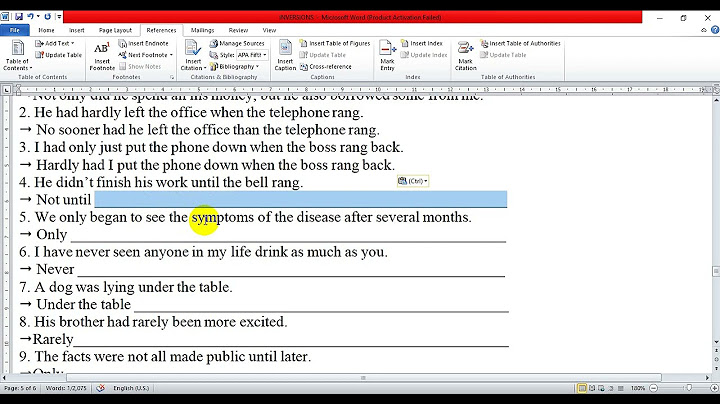With unit tests, even before the application is handed over to software testing, the developer gets an answer that something has gone wrong and can correct the code earlier. Catching errors as early as possible saves time and resources. Writing unit tests also allow a better understanding of the code functionalities. Show
In search of Java Development Services? What is Unit Testing?Unit testing is a testing source code methodology for its suitability for use in production. Unit testing verifies the correctness of individual program units. During a unit test, a piece of code subjects to a test case that executes it and compares the result with expectations. Unit tests can check both situations in which the code works correctly and those in which it should not. The list of the TOP 10 Java Unit Testing Frameworks for 2023Are you among over 9 million Java developers looking for Java unit test frameworks that best fit your project? Check out the overview below, where you will find descriptions of the ten most popular Java unit testing frameworks and exhaustive answers to your questions. JUnit 5: The Most Popular and Widely Used Java Testing FrameworkJUnit 5 is a next-generation framework for automated Java unit testing. JUnit 5 is a rewritten from scratch update of aged JUnit 4. JUnit 5 offers many attractive features, such as parameterized tests, dependency injection, and complete support for Java 8. JUnit test framework also includes a new API, making extending the framework’s capabilities and fitting it to your project needs easier. TestNG: Inspired by JUnit, Designed for High-level TestingTestNG is one of the best Java testing frameworks applied for integration, functional, unit, and end-to-end testing. TestNG is similar to JUnit but is configured with extraordinary annotations and functionalities. TestNG can cover almost every type of efficient testing. TestNG allows creating and running parallel testing on multiple code snippets. You can easily prioritize your Java unit test cases by data parametrization and annotations. Mockito: A Mocking Framework That Allows You to Write Tests With a Clean and Simple APIMockito is a popular mocking framework used in Java unit testing. Its action is based on mocking, a technique used in unit testing that simulates the behavior of dependencies to separate the test in a specific unit. Mockito lets Java developers not waste time writing mock objects explicitly. Thanks to Java Reflection API, the Java unit test framework generates them automatically. The mocking feature in Mockito helps maximize the profits of Test-Driven Development. Powermock: Used for Unit Testing of Private, Final, or Static MethodsPowerMock is a Java test framework that allows you to unit test code considered unable to test. This framework is also an open-source testing software. PowerMock extends the existing mocking frameworks, such as EasyMock and Mockito, to give them more powerful features. PowerMock enables writing good unit tests for even the most untestable code, such as static methods or final classes. Cucumber: A Behavior Driven Development (Bdd) Tool That Supports Multiple LanguagesIt’s a tool suitable for you if you are green as a cucumber in unit testing in Java. Cucumber is a BDD testing framework for writing automated tests in plain English. Using an ordinary language parser called Gherkin, Cucumber allows people who are not technically proficient to write tests. Cucumber is an intuitive Java unit testing framework that allows you to verify initial code assumptions quickly. Thanks to its compatibility with agile testing methodology, Cucumber will also be helpful for teams developing agile projects.  Spock: A Testing and Specification Framework for Java and Groovy ApplicationsAre you looking for an intuitive tool for automated testing on Java Virtual Machine (JVM)? Choose Spock. This framework is compatible with multiple languages supported by JVM. Like Cucumber, Spock can recognize input written in plain English but is more technically advanced. To seamlessly use Spock for Java testing, you must know the Groovy basics. Spock’s intuitive UI, simplistic usage, and powerful Domain Specific Language make it perfect for unit testing in Java for BDD. Built-in Mocking and Stubbing will accelerate your Java unit test procedure. All you need to live long and prosper are the latest versions of JDK and Eclipse. Junit 4: The Predecessor to Junit 5, Still Widely Used in Many ProjectsJUnit 4 is the predecessor of the latest Java unit test framework, which is JUnit 5. Despite the release of the new version, it is still possible to encounter projects tested on JUnit 4. The older version of this Java unit test framework will not work well for all types of projects because, for example, JUnit 4 does not support third-party integration plug-ins or IDEs. The relic in JUnit 4 is also its form because if you use a specific feature, you must import the whole library. Easymock: Allows You to Mock Out and Test Isolated Parts of Your CodeEasyMock is an open-source framework for Java unit testing. The framework allows the creation of test double objects for TDD or BDD. EasyMock provides dynamically generated mock objects at runtime without the need to implement them. In EasyMock, the definition of a mock object differs from using an implemented mock object. EasyMock can be used in app tests with often-changing interfaces. Jmockit: A Java Toolkit for Developer Testing, Including Mocking ApisJMockit is an open-source Java unit testing tool under the MIT License. JMockit includes APIs for mocking, faking, integration testing, and a code coverage tool. JMockit can mock public and private methods with void and non-void return types, field values, static methods, static blocks, and constructors. The JMockit library must be used complementary to a testing framework such as JUnit or TestNG. Assertj: Provides a Rich Set of Assertions to Make Your Tests More Readable and MaintainableAssertJ is a tool that enables writing rich and fluent assertions in Java unit testing. AssertJ provides assertion test classes and utility methods that help write assertions for standard Java, Java 8, Guava, Swing components, and more. The main benefit of AssertJ is that this framework provides auto-completion in IDEs. The test method names are suggested during the test case creation process. AssertJ core can be used with JUnit, TestNG, or any other Java unit test framework. The Future of Java Unit TestingWhat will the next few years look like for unit testing in Java? The popularity of Java will certainly not fade, so unit testing in Java will develop in parallel. Faster and more accurate test methods will be at a premium, and the development of AI will help this. The combination of Java unit testing and AI is already generating catchy data sets that will test code much better and faster than manually typing in input data. Which Java Unit Test Frameworks Will Be Popular in 2024What can we expect in the next few years? Java unit test frameworks that generate fast results will be popular among developers. Currently, popular frameworks that are part of extensive and multi-year projects will continue to be used. Non-technical users will appreciate libraries that process natural language and allow people without specialized Java unit testing knowledge to use them. Choosing the Right Framework for Your ProjectThe top Java testing frameworks gathered in the above article are some subtle suggestions for further work with your test code. It’s crucial to decide on libraries that won’t put too much strain on your systems, but at the same time, it’s not a good idea to choose Java unit test frameworks that aren’t too complex so that you don’t miss serious bugs. If you need help testing your code in Java programming language, feel free to contact Scalo. Best Java testing frameworks have no secrets from us, so you can be sure that professionals will take care of you. What are the top 5 test automation frameworks?The most popular and easy-to-use automation frameworks include Testsigma, Selenium, Appium, Cucumber, and Robot Framework. Each framework has its strengths and weaknesses, and which one you choose depends on your specific needs and requirements. What is the future of test automation in 2023?In 2023, smart testing anticipates growing, and it will make use of sophisticated test automation platforms that carry out intricate user routines. Developers can test code through compliance channels that automatically determine which tests are to run for the specific check-in. Which testing is in demand 2023?A: AI/ML Testing, Blockchain Testing, Mobile Automation Testing, Cyber Security Testing, Test Automation, and Functional Testing are the most demanding in 2023. What is the most popular test framework for Java?
|




















